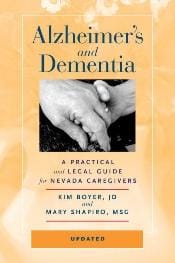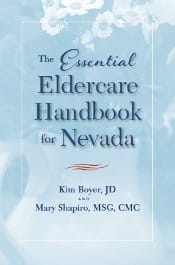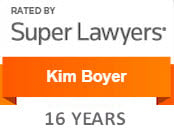Deed Upon Death
“Beneficiary Deed”

By: Kim Boyer | October 7, 2021
Robert’s only asset was his home, and he wanted his son to receive it upon his death. In Nevada, one option for Robert is a Beneficiary Deed or Deed Upon Death. This means that the home would pass outright to the beneficiary at death without probate. Trusts are also another option that avoids probate and can provide protections for beneficiaries. Robert, who lived only on Social Security income, chose a Beneficiary Deed. At Robert’s death, his son asked for our help.
The laws governing Beneficiary Deeds have been updated in Nevada. The following is a summary of the steps that must be taken after death when there is a Beneficiary Deed. The “Grantor” is the person who owns the property and signed the Beneficiary Deed; the “beneficiary” is the person(s) named to receive the property.
- A Notice to Creditors must be published in a newspaper of general circulation. A copy of the Notice to Creditors must be mailed to (a) the Personal Representative of the grantor’s estate, if known; (b) the Department of Health and Human Services (hereafter “Medicaid”); and (c) the known or readily ascertainable creditors of the grantor or the probate estate of the grantor.
- A person or entity having a claim against the grantor or his or her probate estate, must file a claim with the beneficiary within 90 days after the mailing or the first date of publication of the Notice to Creditors. Any claim not filed in that time is forever barred.
- Within 45 days of the Notice to Creditors being mailed to Medicaid, if the grantor did not receive assistance, Medicaid must provide a waiver of claim stating that assistance was not received. If the grantor had received assistance, Medicaid may initiate an action to impose a lien on the property. If notice is not given to Medicaid, the property transferred by the deed upon death remains subject to the right of Medicaid to recover public assistance received by the grantor.
- For claims not originating with Medicaid, if a claim is submitted, the beneficiary must accept or reject the claim. If a beneficiary rejects a claim, the rejection of claim must be sent by registered or certified mail to the claimant, within 10 days of the beneficiary’s receipt of the claim. The claimant then has 30 days in which to file suit.
- To the extent the grantor’s probate estate is insufficient to satisfy an allowed claim against the estate or a statutory allowance to a surviving spouse or child, the estate may enforce the liability against the property transferred pursuant to a deed upon death.
- Upon the expiration of the time to file a claim, and upon receiving a waiver of claim from Medicaid, the property can be sold or distributed pursuant to the deed upon death, without personal liability for any claim which has not been timely filed with the beneficiary.
- A Death of Grantor Affidavit must be recorded on the property.
- A beneficiary inherits the property subject to any liens on the property.
- A beneficiary may disclaim all or part of his or her interest in the property by recording a disclaimer in the county where the property is located.
- When the property is transferred to multiple beneficiaries, the beneficiaries will have to cooperate with each other to sell or manage the property.
You should talk with an attorney to determine if a trust or a deed upon death, or other estate planning tools are the best option for your situation.
Disclaimer: Information provided as a service of Kim Boyer, Certified Elder Law Attorney, updated as of 10/5/21. It does not constitute legal advice. For specific questions you should consult a qualified attorney.





